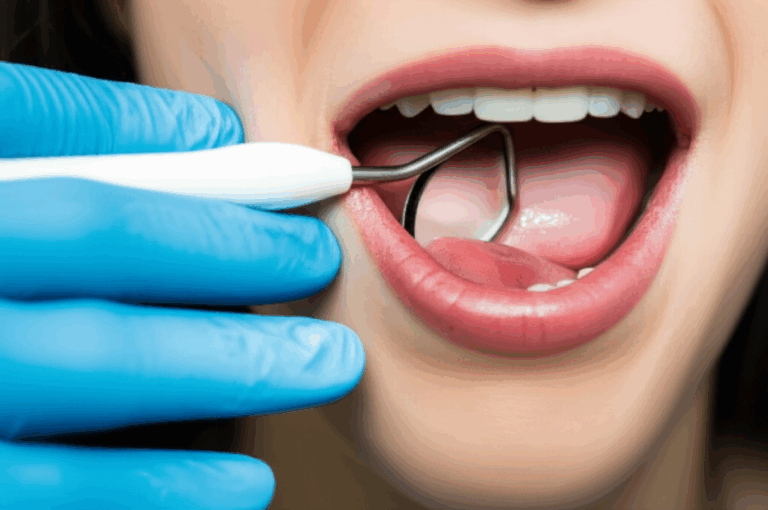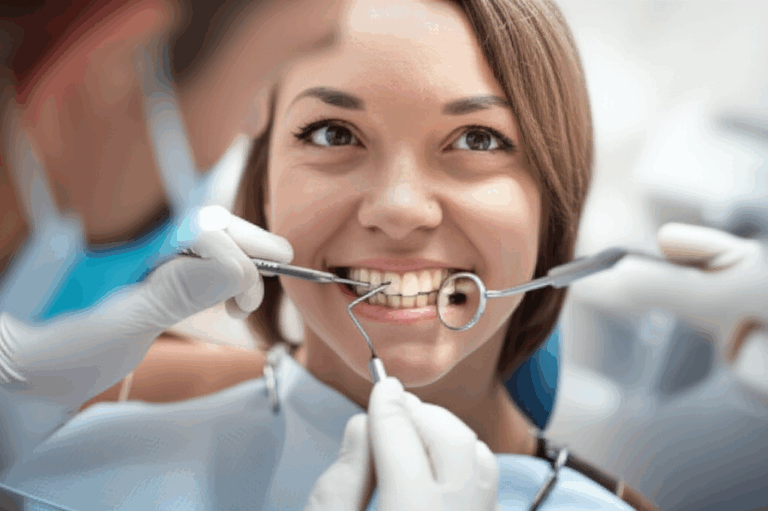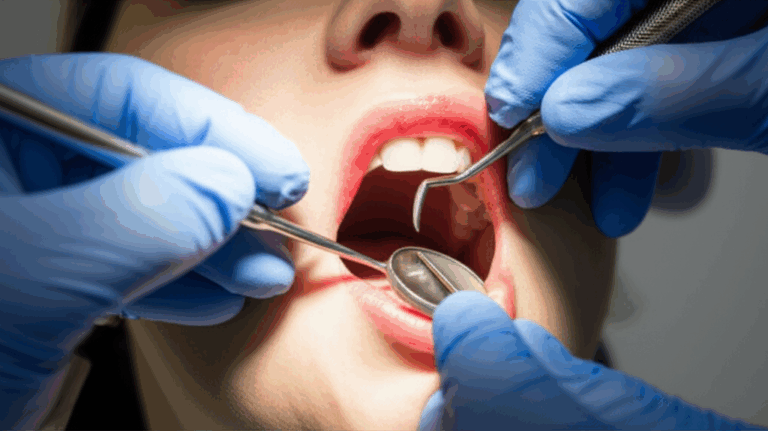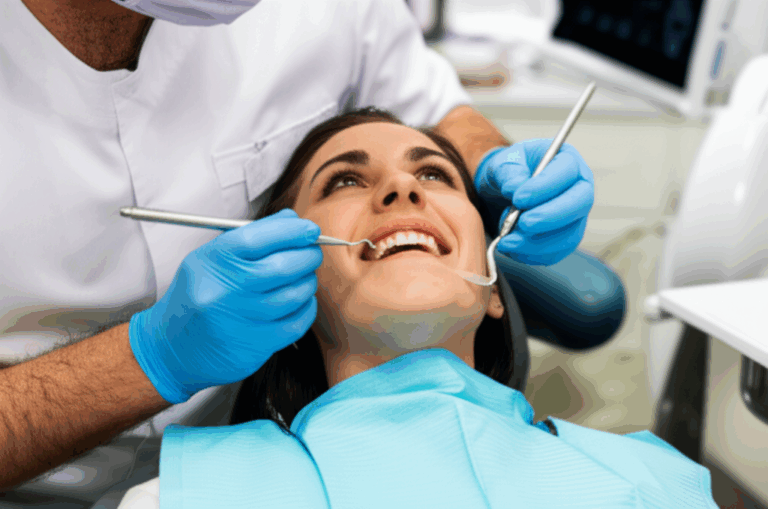
Can a Dentist Help with Tinnitus? Understanding the Oral-Ear Connection
Tinnitus can really make you feel crazy. If you’ve ever had a ringing, buzzing, or hissing sound in your ears that nobody else can hear, you know how annoying it gets. I’ve talked to a lot of people who just can’t find an answer or get relief. Here’s a surprise: Sometimes the fix doesn’t come from your ears at all. The problem can actually be your jaw—and your dentist might be able to help. In this article, I’ll show you how your bite or jaw can make tinnitus happen or make it worse, what signs to look for, and what dentists can really do to help. Keep reading—your road to a quieter life may start with your next dental visit!
Table of Contents
Introduction: Why Are Dentists Talking About Tinnitus?
Let’s get right to it. Tinnitus is that annoying, sometimes super hard to ignore, noise in your ears that nobody else can hear. Most people visit an ear doctor or hearing specialist, thinking their hearing is the problem. But here’s the thing: Your ears aren’t always the reason. Your jaw, your teeth, and your bite can have a lot to do with it.
Dentists and jaw pain specialists have been trying to figure out the jaw-tinnitus link for a long time. Experts like Dr. Joe Dental, who’s worked for many years, have seen more proof of this connection. Why should you care? Because if your hearing test is normal, your dentist might have the answer. It’s something worth knowing!
What Is Tinnitus and Why Does It Happen?
Tinnitus is just a word for any ringing, buzzing, or hissing sound you hear when nothing is actually making a noise. Some people say it sounds like bugs, bells, or even a fridge humming when it’s quiet.
The Usual Reasons
Most of the time, tinnitus starts because something hurts the inside of your ear—maybe from loud sounds, getting older, or even some medicine. That’s why most people see an ear doctor first.
But Sometimes It’s From Your Body
There’s also somatic tinnitus. That means the tinnitus is coming from body parts near your ear—like your jaw muscles, neck, or nerves in your face. Some research says up to 30% of people with long-lasting tinnitus actually have it from these body parts, not the hearing system.
Fun Fact: About 10-25% of people with jaw problems (TMD) also say they have tinnitus. In some groups, it’s even higher. That’s not by accident!
Can My Jaw Really Make My Ears Ring?
Here’s a common question. Can your jaw, teeth, or your bite really make your ears ring? The answer: Yes, it can. Let’s see how.
Short Anatomy Lesson
Your jaw joint, called the temporomandibular joint (TMJ), sits right in front of your ear. This is where your lower jaw meets your head. In this small area, there are muscles, nerves, ligaments, and tiny blood vessels all crowded together.
Feelings Move Around
The TMJ is so close to your ear canal that if anything goes wrong—like pain, swelling, or tight muscles—you might feel it in your ear too. Sometimes, nerves from the jaw and ear are so close together that your brain gets confused and “hears” things that aren’t there.
So when your jaw isn’t right, your ear may start to complain with weird noises.
What Are TMJ Disorders and How Do They Cause Ear Ringing?
Let’s break this down. Temporomandibular joint disorders (TMD) are just problems with your jaw joint and the muscles around it. Think of it like a car: If one part is broken, everything else can start to act funny.
What Is TMD?
TMJ problems can happen from arthritis, injury, sore muscles, or trouble inside the joint. You might get jaw pain, headaches, clicking or popping noises when you chew, and yes—ringing in your ears.
Why Does It Cause Tinnitus?
- Shared Nerves: The TMJ and the ear use some of the same nerves, mostly the trigeminal nerve.
- Tight Muscles: Stiff jaw muscles can pull on the spot by your ear and bother nerves that deal with sounds.
- So Close Together: When the joint is red or sore, it’s right next to your ear canal.
Example: One patient said her tinnitus always got worse when she chewed gum or opened her mouth wide. She had TMD, and her dentist helped her feel better.
Is Teeth Grinding (Bruxism) Making My Tinnitus Worse?
Do you ever wake up with a sore jaw or have lots of headaches? You might be grinding your teeth at night—this is called bruxism. And yes, this can make your tinnitus worse.
Why Does This Matter?
When you clench or grind, your jaw muscles get tight and can even cramp. Over time, this bothers both your jaw joint and the nerves around it.
How It Gets Worse
If you’re stressed or tense, you put more pressure on the muscles that also help with ear pressure (like the eustachian tube). This can mean louder ringing, usually at night or after a hard day.
Studies say up to 30-40% of people with TMJ-related tinnitus also grind their teeth.
Could a Bad Bite (Malocclusion) Be the Culprit?
Now let’s talk about your bite—how your top and bottom teeth fit when you close your mouth. Malocclusion is another word for when your bite is uneven.
Why Does a Bad Bite Cause Problems?
If your teeth don’t come together right, your jaw joint gets extra pressure. Over time, the muscles can get tired or out of place. These muscles can then pull at the area near your ears and cause pain or tinnitus.
What to Look Out For
People with bad bites sometimes notice popping jaws, face pain, or headaches along with their ear sounds. If you’ve had a lot of dental work or braces, ask your dentist to check your bite next time.
Are There Other Dental Causes of Tinnitus?
We already talked about jaw joints and bites, but can your mouth cause ear ringing in other ways too?
Dental Work
Big dental surgeries or even long dental visits where you have to keep your mouth wide open can upset the nerves next to your ear. This might cause short-term tinnitus. In rare times, getting a wisdom tooth out or a hard root canal might make your ear ring for a little while if the tissues get sore. Even a new dental bridge or implant might bother nerves for a bit.
Stress and Tight Muscles
If you’re stressed, you might clench your jaw, hunch your neck, and make your face muscles tight. That can easily start up tinnitus.
Special Cases
Some people with things like muscle problems, sleep issues, or posture trouble come to the dentist with jaw pain and tinnitus. It’s all connected!
When Should I See a Dentist for Tinnitus?
Don’t run to the dentist for every weird noise in your ear. But if you notice any of these things, it’s a good idea to make an appointment.
Signs You Should Go
- You have tinnitus and your jaw hurts, feels stiff, or pops when you chew.
- Your ears feel kind of blocked or hurt, but you don’t have an infection.
- Your tinnitus changes when you clench your teeth, move your jaw, or open your mouth wide.
- You have headaches, face pain, or neck pain along with tinnitus.
When the Ear Doctor Says “It’s Not Your Ears”
If your hearing tests and scans look normal, your next stop should be your dentist. Sometimes a group effort is needed: Dentists, ear doctors, and hearing experts working together to solve the puzzle.
How Does a Dentist Diagnose Jaw-Related Tinnitus?
Dentists don’t just give a quick look at your teeth here. A good dentist or specialist will take their time.
Your Story Matters
First, they’ll listen to your story. When did it start? Does it come and go? What makes it worse? These details are important.
The Check-Up
Here’s what happens:
- Move Your Jaw: Open and close, move side to side—does it hurt?
- Muscle Check: The dentist will gently press on your jaw, neck, and head muscles to see if they hurt.
- Bite Care: They’ll look for teeth that are worn down, uneven, or missing.
- Pictures: You might get X-rays or an MRI to look inside the joint.
If your dentist thinks the problem is too big for them, they’ll send you to an ear doctor or nerve doctor.
Table: What Your Dentist Looks For
| Step | Why They Do It | What They Might Find |
|---|---|---|
| Patient story | Understand when/why it starts | Tinnitus changes with movement |
| Physical exam | Check muscles and joint | Jaw pain, clicking sounds |
| Bite and teeth look | Check if bite is even | Uneven bite, worn teeth |
| X-rays/MRI | Look inside the jaw joint | Disc trouble, arthritis |
What Can a Dentist Do for Tinnitus? Treatment Options Explained
Here’s some good news: Dentists can help in a lot of ways. No magic here! But for plenty of people, these ideas really work.
Splints and Night Guards
Think of these as soft “shields” for your teeth. A custom night guard (from a night guard dental lab) keeps you from grinding your teeth, helps your muscles relax, and gives your jaw a break while you sleep.
Fixing Your Bite
If your bite is off, a dentist can smooth or change some tooth surfaces. This evens out your bite and makes your jaw move better, so you’re less likely to clench.
Jaw Exercises and Physical Therapy
Some dentists and therapists can teach you easy stretches and motions for your jaw and neck. Doing these often helps loosen tight muscles and make movement easy again.
Pain Relief and Stress Help
Your dentist might also suggest:
- Hot or cold packs
- Anti-pain medicines or muscle relaxers
- Stress-busting tips like breathing exercises
Working with a Team
If things are really tough, you might see a team: jaw surgeons (but surgery is rare), ear doctors, hearing experts, or even a nerve doctor.
Helpful Products
A good dental splint or guard can actually change lives. So many people have told me that wearing one helped them finally get a quiet night of sleep.
If you need anything from dental ceramics to implants, it’s always smart to pick someone who understands the whole jaw-ear connection.
How Well Does Dental Treatment Work for Tinnitus?
Let’s be real. Can dentists promise a total fix? Nope. But can they help a lot? Yes, for many people.
The Stats
Many studies say:
- Half to most (about 50-70%) of people with TMJ-related tinnitus feel a lot better after using splints or jaw therapy.
- Full “cures” aren’t common, but turning the loud noise down is very possible.
Real person story: One guy with jaw pain and squealy tinnitus found that after using a night guard and doing jaw stretches, his ear ringing was way less—around 60% better. His headaches went away and he felt happier too!
Best Results with a Group
People who use dental help, therapy, stress fixes, and bite corrections together get the best results. (That’s why smart clinics work with dental labs and other pros.)
What Should I Expect from a Team Approach?
Sometimes your dentist will work together with other experts.
Who Might Be On Your Team?
- Dentist or Pain Specialist: Finds the problem, fits splints, fixes bite
- Ear Doctor or Hearing Expert: Hearing tests, images/scans
- Therapist: Shows exercises for jaw and neck
- Jaw Surgeon or Nerve Doctor: For rare, really tricky problems
What To Know
You probably won’t be “fixed” in a day. But, with a little time and the right people, most folks see big changes in pain, jaw movement, and less ear ringing.
Frequently Asked Questions (FAQ)
Q: Will my insurance pay for dental treatment for tinnitus?
A: It depends. Sometimes bite guards or jaw therapy are covered if you get a diagnosis from your dentist. Always ask first!
Q: What if my tinnitus is worse after dental treatment?
A: Not common, but if that happens, call your dentist. Sometimes you just need a new approach or other types of therapy.
Q: Can kids or teenagers get jaw-related tinnitus?
A: Yes, especially if they grind their teeth, play rough sports, or just had braces. A kids’ dentist can give you advice on the next step.
Key Takeaways: The Important Stuff to Remember
- Your jaw and ears are super close. What happens in your mouth can show up in your ears.
- Tinnitus can be linked to jaw joint problems, teeth grinding, or a bad bite. It’s more common than you think.
- Tinnitus that changes when you move your jaw, or comes with jaw pain, should be checked by a dentist.
- Dentists can help with night guards, bite fixes, jaw exercises, and pain help.
- A team works best. For really tough tinnitus, a group of experts gives you the best shot at feeling better.
- Don’t give up. If ear doctors can’t tell you why you have ringing, your dentist could have the answer.
If you’re dealing with jaw pain, headaches, or weird ear noises, don’t wait. Call your dentist or a jaw pain specialist. Help might be closer than you think, and sometimes just changing how you bite or sleep can bring big relief.







